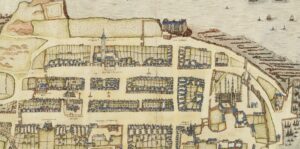In 2014/2015, the EU faced one of the most severe border crises in its contemporary history, profoundly reshaping its governance structures and democratic values. Migrants crossing its land and maritime frontiers provoked a number of reactions from its institutions, politicians and citizens. Over the course of the following six years, the EU territory was re/formed through spatial contestations, severe border violence and xenophobic discourses. At the same time, the continent has witnessed unprecedented and decentralised solidarity actions toward these newcomers. In these ways, the continent’s ‘refugee crisis’ involved multiple dynamics between a range of actors and stakeholders, which were not always picked up by mainstream media. Today, a localised and largely invisible humanitarian crisis still unfolds as a result of hostile EU policies aiming to restrict migrant mobility by deploying militarised technology and personnel at its internal and external borders. These developments have created new complexities in the study of migrant mobility, border control, and resistance. Questions are raised around the impact that the EU’s emerging border regime has on migrants’ well-being on an everyday personal, and a more collective level.
In 2017-2018, I conducted original field research in three sites: a refugee camp, an occupied public building and an immigration detention centre in Athens, Greece. I looked at the ways in which (forced) migrants would navigate everyday life, as they were in a long-term mode of waiting to restart their life. I explored the role that smartphones and other Information and Communication Technologies (also known as ICTs) played in their life circumstances at the time.
During my Fellowship I am focused on disseminating the findings of my research to a range of audiences which include academics but also – and perhaps more importantly- the wider societies. Specifically, I am authoring research papers to be published in academic journals and I am also co-organising certain impact and engagement activities. These activities, include the production of a digital magazine (also known as zine) with the active collaboration of migrants, activists and artists where we will be presenting our shared ideas about social inclusion and the daily experiences of living together in the urban fabric. Additionally, I am producing a limited series podcast where I will be discussing with women researchers about their fantastic work but also the lived experience of being a woman early -career in today’s academia.

